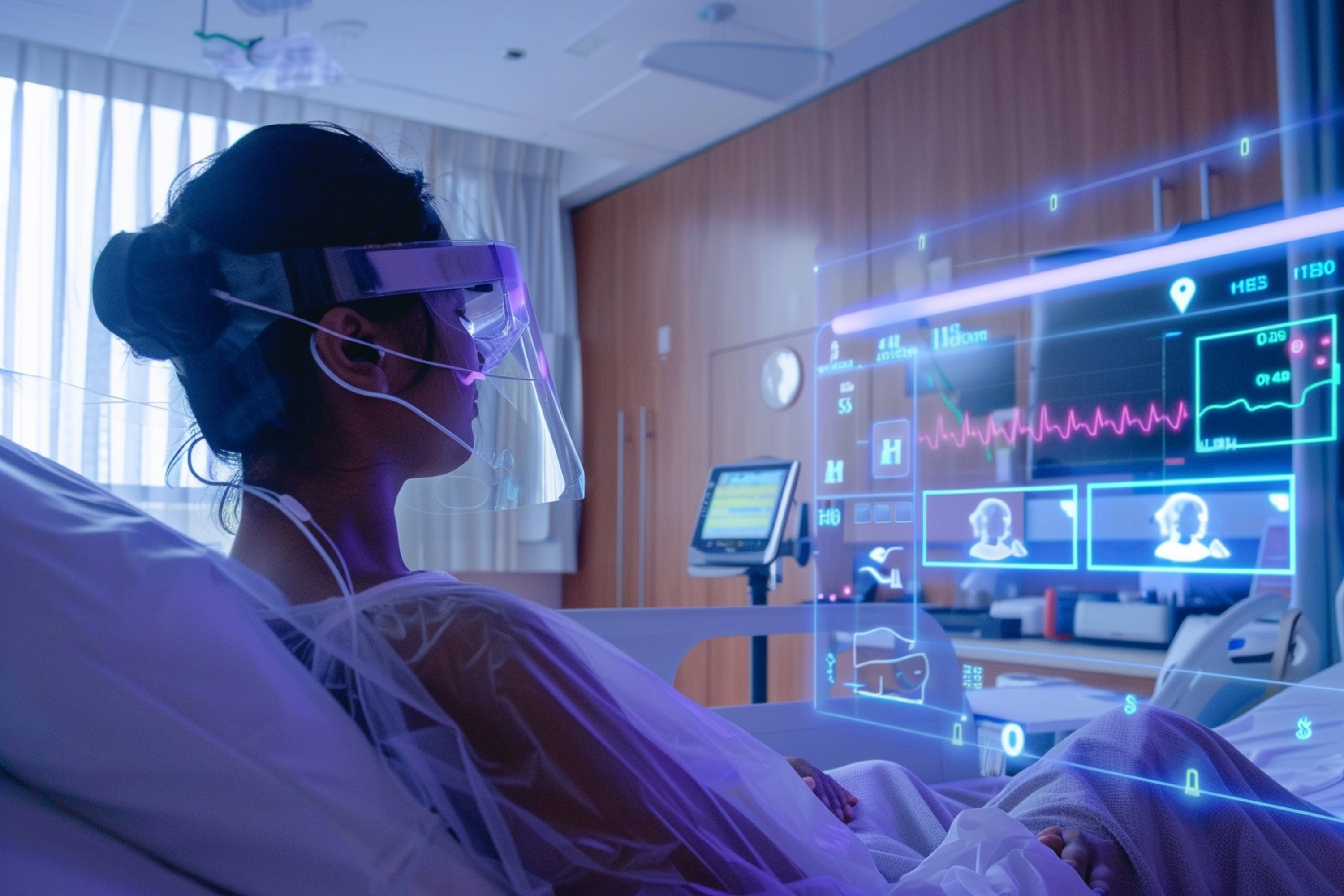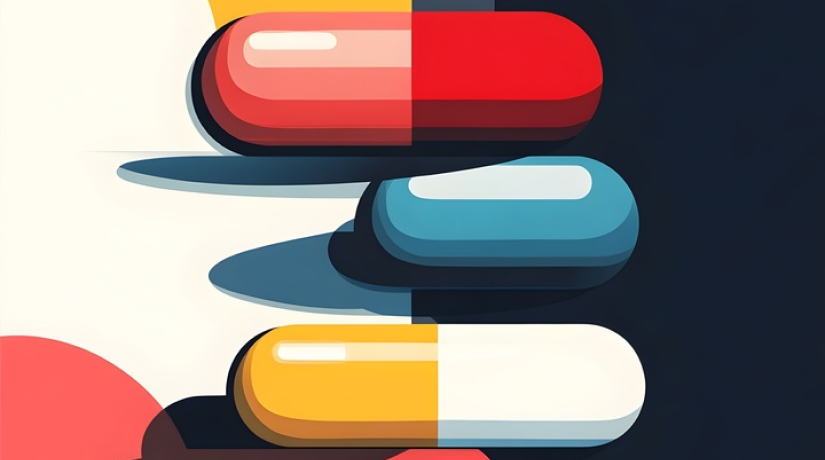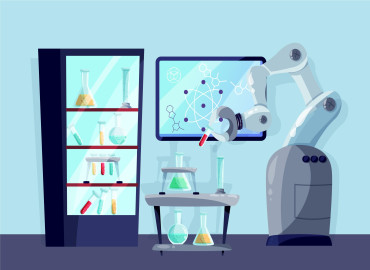by Dr. Sushmitha Sundar
8 minutes
Ayushman Bharat Digital Mission: India’s AI Backbone for Preventive & Personalized Healthcare
ABHA IDs and AI are shaping India’s future healthcare—personalized, predictive, and privacy-first.
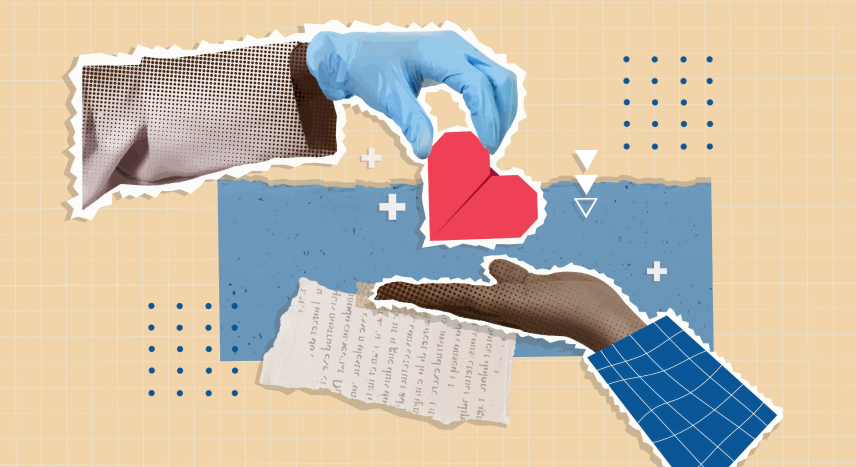
Imagine a future where a doctor doesn’t just treat your symptoms, but predicts your illness years before it arrives. Where an app gently nudges you to walk a little more, eat a little less sugar, or go for an early screening—not because it’s generic advice, but because it’s you-specific.
That future is not science fiction. It’s slowly being built under the Ayushman Bharat Digital Mission (ABDM) through ABHA IDs (Ayushman Bharat Health Accounts). What looks today like just electronic health record-keeping could, in reality, be the foundation of India’s most ambitious experiment with AI-driven preventive and personalized healthcare.
ABHA as the Base Layer for AI in Healthcare
1. Unified Longitudinal Health Records
With ABHA IDs, every Indian—from a villager in Odisha to a banker in Mumbai—can build a lifetime digital health history that cuts across hospitals, labs, pharmacies, and wellness centers.
For AI, this means:
- Clean, structured, interoperable data over time
- Disease risk predictions before symptoms show up
- Personalized treatment plans that evolve with the individual
2. Risk Stratification at Scale
Chronic diseases like diabetes, hypertension, and kidney disorders rarely appear overnight. With enough ABHA-linked data, AI models can:
- Detect early warning signs
- Flag high-risk individuals using lifestyle, family history, or regional exposure
- Enable targeted, cost-effective population screening
Example: An AI trained on ABHA data could flag a 30-year-old in rural Odisha with rising blood sugar and a sedentary lifestyle as “pre-diabetic” long before a formal diagnosis.
3. Customized Health Nudges & Behavioral AI
Instead of generic wellness apps, imagine an AI-driven coach that reads your lab report and nudges you:
- “Walk 3,000 more steps this week”
- “Reduce salt intake based on your blood pressure trend”
This is personalized, consent-driven, and rooted in your health journey.
4. Fuel for Federated Learning
With federated learning, ABHA-linked systems can train AI models without ever moving raw patient data. Data stays secure in hospitals and labs, while intelligence flows across systems—protecting privacy while enabling powerful insights.
5. Bridging Public Programs & AI Innovation
India’s national health programs—maternal health, anaemia control, NCD screening—often operate in silos. ABHA can unify these datasets, enabling AI to:
- Spot coverage gaps
- Reduce redundancies
- Identify high-impact intervention points
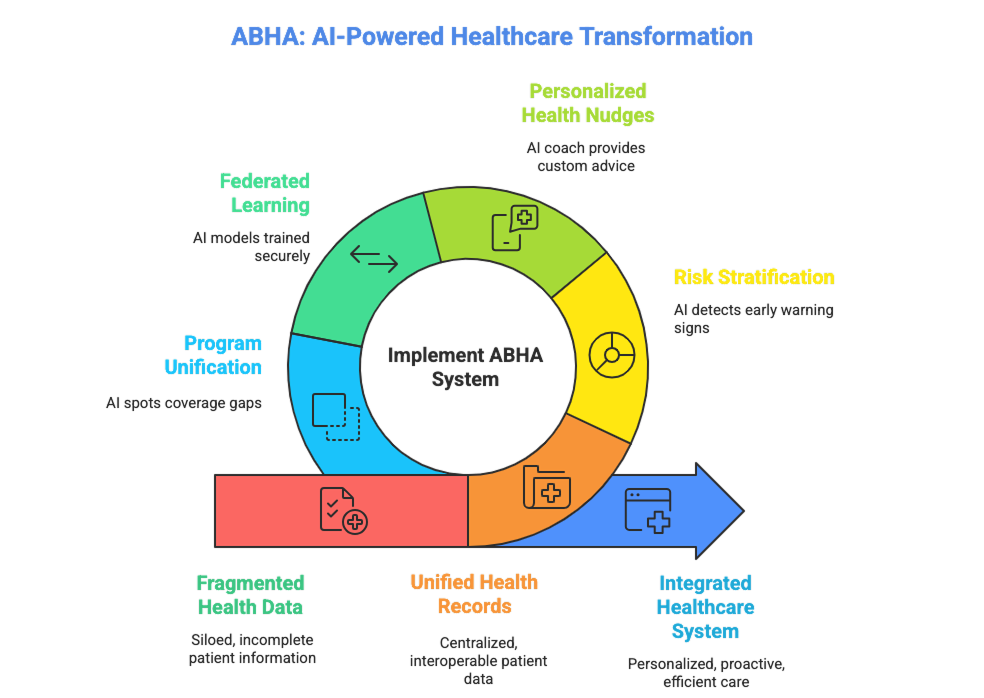
What Needs Attention
Of course, the promise of ABHA + AI rests on solving some critical challenges:
- Data completeness: Many health events are still offline
- Consent literacy: Citizens must understand how their data is used
- Digital inclusion: Low-literacy and offline populations cannot be left behind
- Quality standards: AI is only as strong as the quality of data input
Done right, ABHA isn’t just a health ID—it’s India’s passport to predictive, personalized healthcare.
Designing an AI Tool for Cancer Screening in Punjab
Let’s put this to the test. Suppose we want an AI tool that uses five years of a woman’s health records in Punjab to recommend a tailored cancer screening timeline. What would it take?
Technical Systems Needed
- Structured Health Records – Digitized, interoperable (e.g., HL7 FHIR format), spanning hospitals, labs, maternal health programs.
- Integrated Data Layer – Aggregates, cleans, and validates records, with NLP to extract unstructured notes.
- Population-Specific AI Models – Trained on Indian female cohorts, factoring in Punjab-specific cancer prevalence.
- Explainable AI (XAI) – Transparent outputs showing risk factors and timelines, avoiding black-box decisions.
- Integration with Public Health Systems – Seamless referral pathways via HWCs, ABDM platforms, or cancer control programs.
Ethical & Policy Systems Needed
- Informed Consent & Patient Control – Granular choices (“yes for screening, no for pharma research”).
- Bias Audits – Ensure fairness across caste, income, rural/urban divides.
- Privacy-Preserving Training – Federated learning and differential privacy methods.
- Oversight & Certification – Clinical validation, ethics committees, CDSCO review.
If built right, such a tool could shift cancer screening from age-based checklists to risk-based personalization, catching disease earlier, lowering costs, and building trust.
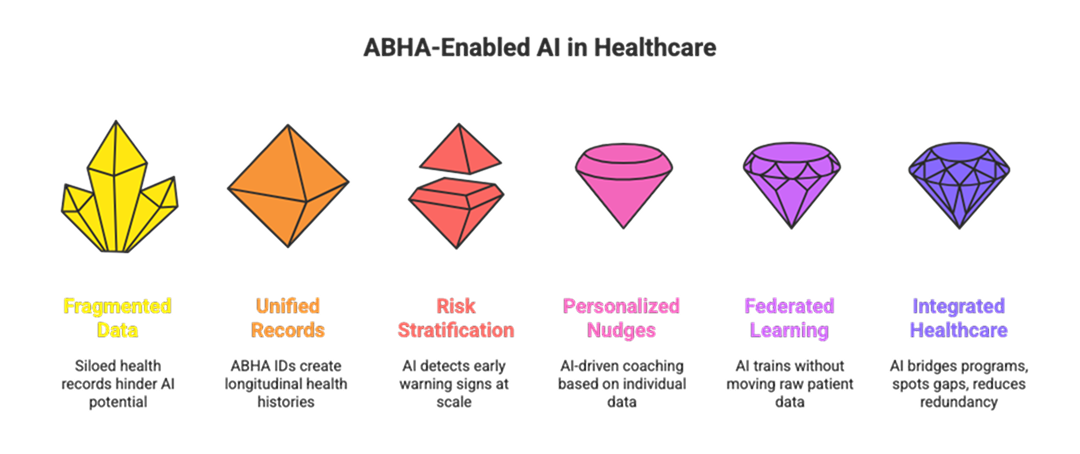
ABDM as a Federated Learning Platform
Federated learning might just be ABDM’s superpower.
Instead of pooling sensitive patient data, hospitals and labs can run AI models locally. The models learn from the data, send encrypted updates to a central server, and receive back an improved version—all without moving the raw data.
Why ABDM is positioned to lead this:
- Already building the health data infrastructure (ABHA IDs, HIE-CM systems)
- Backed by government trust, scaling across India
- Aligned with India’s Digital Personal Data Protection Act (DPDP)
Potential Use Cases
- Cancer risk prediction across regional hospitals
- Diabetes models for young women in rural vs. urban India
- Maternal health risk models for tribal communities
- Antibiotic resistance prediction trained across labs without sharing raw data
Federated learning ensures that India respects data sovereignty while unleashing population-scale AI insights.
The Road Ahead
The Ayushman Bharat Digital Mission is more than a digital health initiative—it’s the AI backbone of India’s future healthcare system.
ABHA IDs are the keys. AI is the engine. Federated learning is the fuel. Together, they could transform India’s healthcare from reactive to predictive, from siloed to integrated, from generic to personalized.
But this journey requires more than technology. It needs governance, trust, and empathy—ensuring that every citizen, regardless of literacy, geography, or income, benefits equally.
If India gets this right, ABDM won’t just digitize healthcare—it will democratize it.


